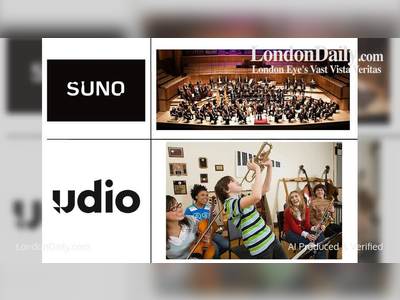Lamine Yamal? The ‘Heir to Messi’ Lost to Barcelona — and the Kingdom Is in a Frenzy
Eighteen-year-old Brazilian forward Estevão, known as “Little Messi,” stunned Barcelona with a brilliant goal as Chelsea sealed a three-nil victory at Stamford Bridge.
The commentators are delighted — “start believing the hype,” one urged — while his coach at Chelsea tries to keep expectations calm, reminding the world that the teenager “just needs to enjoy himself”.
Yet anyone who was at Stamford Bridge last night knows the truth: the evening belonged to Estevão.
At only eighteen, the Brazilian prodigy — nicknamed “Messinho,” or “Little Messi” — delivered a performance that electrified the stadium.
In a match billed as a showdown between global football’s two brightest young stars, Lamine Yamal for Barcelona and Estevão Willian for Chelsea, the balance shifted quickly.
Yamal struggled under Chelsea’s relentless pressure and tight marking.
Estevão, meanwhile, dominated the field and led the Blues to a resounding three-nil triumph.
The match’s defining moment came in the fifty-fifth minute.
Receiving the ball from Reece James, Estevão cut inside, slipped past Alejandro Balde, and curled a spectacular shot into the top corner.
“Start believing the hype,” said former player Pat Nevin in commentary.
“It’s not just the goal — it’s his intelligence, his movement, his character. He has a natural elegance you see in very few”.
Former striker Daniel Sturridge added, “Everyone came to watch Yamal, but this night belongs to Estevão”.
Estevão is in the midst of a breakout season.
The goal against Barcelona was his third in the Champions League — all scored in his first three matches in the competition.
At eighteen years and two hundred twenty-five days, he became only the third teenager in history to score in each of his first three Champions League appearances, joining Kylian Mbappé (at eighteen years, one hundred thirteen days) and Erling Haaland (at nineteen years, one hundred seven days).
His rapid rise is also reflected in his market value.
According to Transfermarkt, he is currently valued at sixty million euros, making him the third most expensive player in the world under nineteen — behind only Yamal, valued at two hundred million euros, and Barcelona teammate Pau Cubarsí at eighty million.
“I don’t really have words for how I feel right now. It was truly the perfect night,” the Brazilian said afterward.
“I just thank God for everything that has happened. From here, I can only move forward and upward”.
Yet anyone who was at Stamford Bridge last night knows the truth: the evening belonged to Estevão.
At only eighteen, the Brazilian prodigy — nicknamed “Messinho,” or “Little Messi” — delivered a performance that electrified the stadium.
In a match billed as a showdown between global football’s two brightest young stars, Lamine Yamal for Barcelona and Estevão Willian for Chelsea, the balance shifted quickly.
Yamal struggled under Chelsea’s relentless pressure and tight marking.
Estevão, meanwhile, dominated the field and led the Blues to a resounding three-nil triumph.
The match’s defining moment came in the fifty-fifth minute.
Receiving the ball from Reece James, Estevão cut inside, slipped past Alejandro Balde, and curled a spectacular shot into the top corner.
“Start believing the hype,” said former player Pat Nevin in commentary.
“It’s not just the goal — it’s his intelligence, his movement, his character. He has a natural elegance you see in very few”.
Former striker Daniel Sturridge added, “Everyone came to watch Yamal, but this night belongs to Estevão”.
Estevão is in the midst of a breakout season.
The goal against Barcelona was his third in the Champions League — all scored in his first three matches in the competition.
At eighteen years and two hundred twenty-five days, he became only the third teenager in history to score in each of his first three Champions League appearances, joining Kylian Mbappé (at eighteen years, one hundred thirteen days) and Erling Haaland (at nineteen years, one hundred seven days).
His rapid rise is also reflected in his market value.
According to Transfermarkt, he is currently valued at sixty million euros, making him the third most expensive player in the world under nineteen — behind only Yamal, valued at two hundred million euros, and Barcelona teammate Pau Cubarsí at eighty million.
“I don’t really have words for how I feel right now. It was truly the perfect night,” the Brazilian said afterward.
“I just thank God for everything that has happened. From here, I can only move forward and upward”.
Describing the goal, he explained, “Everything happened very fast. I found a bit of space, cut into the box, and struck the ball. It was a very special moment in my career. I hope to score many more. I’m grateful my family was here to see it. From the moment I arrived, I felt a strong connection with the supporters. I’m just happy I could score for them”.
So did we witness the true heir to Messi?
His coach, Enzo Maresca, urged caution.
“Estevão needs to relax. He needs to enjoy himself, he needs training, he needs matches. He and Lamine are so young — both eighteen — that talking about Messi or Cristiano Ronaldo puts too much pressure on kids their age”.
“When people start comparing them to Messi or Ronaldo, it becomes too much,” Maresca continued.
“They should enjoy the game, arrive at training happy, and keep working”.
Estevão’s journey to Chelsea is already the stuff of sporting mythology.
Born in Franca, São Paulo, he was only ten when Palmeiras tried to recruit him — but lost out when Cruzeiro offered ten times more.
He later became the youngest Brazilian ever to sign a sponsorship deal with Nike, younger even than Neymar or Rodrygo.
At fourteen he finally joined Palmeiras, and five months before he was eligible to sign a professional contract at sixteen, the club pre-announced their agreement — a highly unusual move in Brazilian football.
During the under-seventeen World Cup in twenty-twenty-three, the Spanish sports daily AS wrote, “Brazil has a new genius”.
In the twenty-twenty-four season, no player in Brazil’s top league was involved in more goals than Estevão, with thirteen goals and nine assists — breaking Neymar’s record for most goal contributions by a player under eighteen.
He was named both Young Player of the Season and Attacker of the Season as Palmeiras finished second, six points behind champions Botafogo.
Many have described Estevão as mature beyond his years — a quality evident in a personal essay he wrote last year about the sacrifices his parents made.
In an interview this past June, he spoke emotionally about his move to Stamford Bridge.
“It’s like a dream I’m about to realize. I need to focus, I need to work — but it’s not easy. The closer it gets, the more anxious you feel”.
Those comments sparked criticism from some Palmeiras fans and local media, who accused him of being distracted during the club’s Club World Cup campaign last summer.
His then-coach Abel Ferreira defended him firmly.
“You know the difference between a person and an animal?
Emotions,” the Portuguese manager said.
“It’s normal to feel nervous before matches like these. It’s normal for a child realizing a dream to feel this way. He’s eighteen — he was innocent in what he said. And many of you, the journalists, tore into him. That’s exactly what you do to players”.
Ferreira added in May twenty-twenty-four that Estevão was “unlike anything I’ve ever seen” — an assessment that now seems prophetic.
So did we witness the true heir to Messi?
His coach, Enzo Maresca, urged caution.
“Estevão needs to relax. He needs to enjoy himself, he needs training, he needs matches. He and Lamine are so young — both eighteen — that talking about Messi or Cristiano Ronaldo puts too much pressure on kids their age”.
“When people start comparing them to Messi or Ronaldo, it becomes too much,” Maresca continued.
“They should enjoy the game, arrive at training happy, and keep working”.
Estevão’s journey to Chelsea is already the stuff of sporting mythology.
Born in Franca, São Paulo, he was only ten when Palmeiras tried to recruit him — but lost out when Cruzeiro offered ten times more.
He later became the youngest Brazilian ever to sign a sponsorship deal with Nike, younger even than Neymar or Rodrygo.
At fourteen he finally joined Palmeiras, and five months before he was eligible to sign a professional contract at sixteen, the club pre-announced their agreement — a highly unusual move in Brazilian football.
During the under-seventeen World Cup in twenty-twenty-three, the Spanish sports daily AS wrote, “Brazil has a new genius”.
In the twenty-twenty-four season, no player in Brazil’s top league was involved in more goals than Estevão, with thirteen goals and nine assists — breaking Neymar’s record for most goal contributions by a player under eighteen.
He was named both Young Player of the Season and Attacker of the Season as Palmeiras finished second, six points behind champions Botafogo.
Many have described Estevão as mature beyond his years — a quality evident in a personal essay he wrote last year about the sacrifices his parents made.
In an interview this past June, he spoke emotionally about his move to Stamford Bridge.
“It’s like a dream I’m about to realize. I need to focus, I need to work — but it’s not easy. The closer it gets, the more anxious you feel”.
Those comments sparked criticism from some Palmeiras fans and local media, who accused him of being distracted during the club’s Club World Cup campaign last summer.
His then-coach Abel Ferreira defended him firmly.
“You know the difference between a person and an animal?
Emotions,” the Portuguese manager said.
“It’s normal to feel nervous before matches like these. It’s normal for a child realizing a dream to feel this way. He’s eighteen — he was innocent in what he said. And many of you, the journalists, tore into him. That’s exactly what you do to players”.
Ferreira added in May twenty-twenty-four that Estevão was “unlike anything I’ve ever seen” — an assessment that now seems prophetic.









